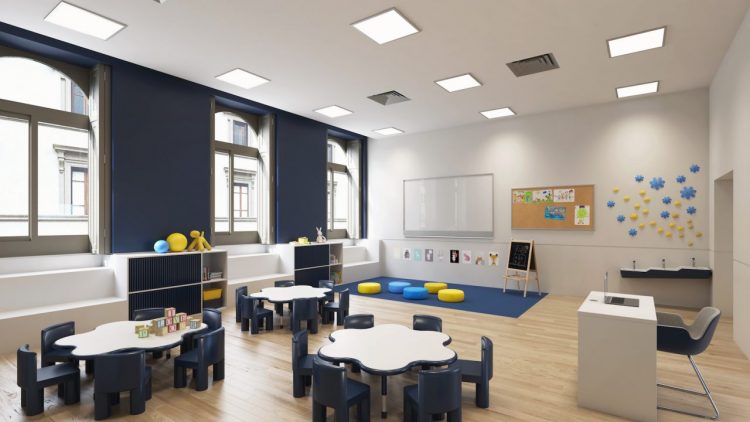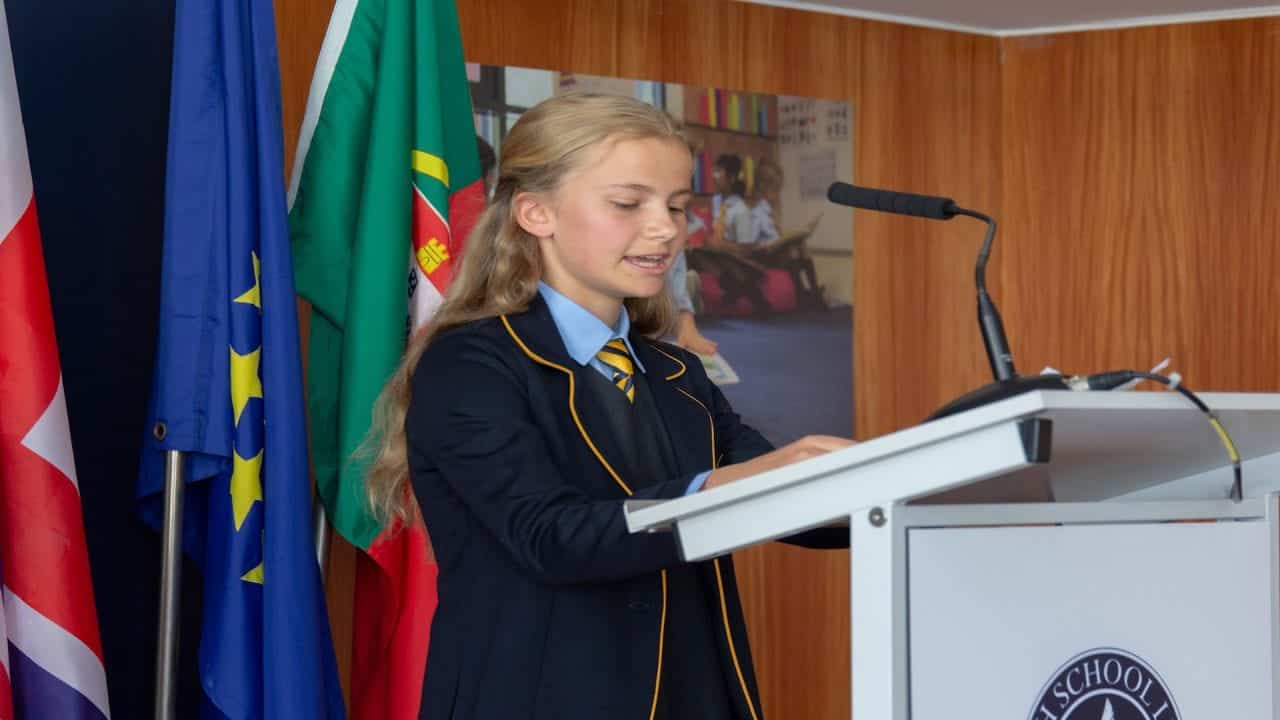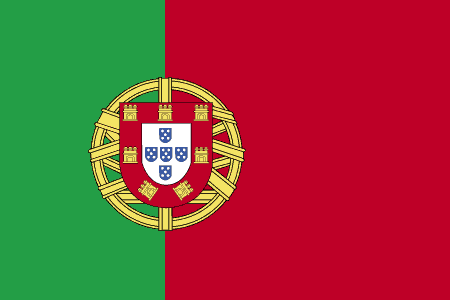Relocating with the family to Portugal? Looking for schools to enrol your kids in? We all know that choosing an education system for your child is a difficult task. The challenge often comes when parents are deciding between state schools or private schools. The common question “state or private school” comes into a lot of parents minds. Are the state schools good enough for children or should you opt for a private school in Portugal? Read on for a detailed guide regarding state schools and private schools in Portugal, the structure of the school systems, international schools in Portugal, and what the advantages and disadvantages are to each. Are you moving to Portugal with your family? Find out what are the best international schools in Portugal.

Structure of Schools in Portugal
The first stage of education in Portugal is pre-school for children between the ages of three and five. This is an optional stage of education for parents and is provided by kindergartens around the country. Kindergartens are run by a variety of State organisations and privately owned schools. Primary and secondary education is compulsory in Portugal for children aged between 6 and 18. Children aged 6 are required to enrol in primary education where they take a range of academic subjects involving personal and social education. These education systems are intended to provide students with a common general training that will allow them to acquire and master basic knowledge and skills and to develop interests and values that will encourage them to participate in further education and later the workforce. Secondary schooling allows children to take both general courses and more specialised course for people aiming to obtain training in a specialised skillset. Students from year 9 onwards can take courses specialised in arts, technology, science, or other vocational courses. Travelling to Portugal with kids? Read this guide for the Top 9 Things in Portugal you must do with your kids.
State Schools in Portugal
Education in Portugal is run by the Ministry of Education. The municipal governments and local authorities are all involved in various ways of funding the state school system. State primary schools all over the country follow the same common curriculum set by the central government. The content for secondary schooling depends on the technical or vocational studies undertaken by the students. State schooling is inclusive of children with special needs, allowing them to join mainstream education alongside other class members. But lessons in state schools are taught in Portuguese, with limited provisions for non-native speakers. State education in Portugal is free and compulsory until the age of 18.
Where does Portugal’s Education System Rank?
According to a study by the Program for International Student Assessment, a worldwide study of 70 nations in 15-year-old scholastic performance, Portugal scored 24th on mathematics, science, and reading.
Do the state schools in Portugal have any problems?
Historically, Portugal has had disadvantages when it comes to education. Now, in the midst of an economic crisis, the government is trying to find solutions. However, state schools are facing budget cuts due to the country’s debt. Teachers, curriculum and funding are being reduced in order to solve the debt problem. With a decline in teachers, classrooms are becoming more crowded, with 20-30 students to a teacher, in the end, it will all the depend in the area where the state school is located. Some of the best schools in Portugal are state schools.
How to Enrol in State Schools in Portugal?
The enrolment period for state schools is between January and May of the previous year with the cut-off date usually around mid-July. If you are enrolling children from a non-Portuguese school, then it is best to contact the school’s governing body to request the exact information. Generally, state schools follow the following term dates:
- First term: 15th – 21st September to 15th December
- Second term: 3rd January to 2nd week of premature Easter
- Third term: First Tuesday after Easter until 15th June
When enrolling it is important to bring the appropriate documentation with official Portuguese translations just in case. Bring your child’s passport/ID card, vaccination book, health declaration, photo ID, and an enrolment form.

Best State Schools in Portugal
Here, we’ve made a list of the best state schools around Portugal, in Lisbon, Porto, and the rest of the country:
In Lisbon
- Apisal – Avenida Almirante Reis, 38 1150-018 Lisbon
- Colégio Luso-Suiço – Rua de Santo Amaro, 18 1200-803 Lisbon
- Criem Educação Infantil e Ensino Fundamental Ltda – Rua Guraiuva 1565/1567 Brooklin Lisbon
- CEBE – Estrada de Benfica, 356 1500-099 Lisbon
In Porto
- Sara Cruz – R. de Sta. Isabel, 64 4050-536 Porto
- Escola Superior de Educação de Santa Maria – R. Guerra Junqueiro, 597 4150-389 Porto
- Escola e B 2, 3 Doutor Augusto César Pires Lima – R. António Carneiro, 290 4349-004 Porto
- O Pom-Pom – Jardins de Infância – R. de Antero de Quental, 826 4200-066 Porto
- Colégio Casa Verde – Centro Pedagogico e Cultural – R. de José Monteiro Castro Portugal, 1852, 4405-568 Vila Nova de Gaia
Rest of Portugal
- Secondary School João de Deus – Sede Avenida 5 de Outubro 8004-069 Faro
- High School Tomás Cabreira – Sítio das Figuras, 8000-761 Faro
- College Vasco Da Gama – Av. Dr. António Nabais 71-73, Meleças, 2605-045 Belas
- Secondary School Sebastião Gama – R. Escola Técnica, 2900-354 Setúbal
- Escola Secundária Sá de Miranda – R. Dr. Domingos Soares 187, 4710-306 Braga
Pros and Cons of State Schools in Portugal
Attending state schools in Portugal can be financially much better for families. However, there are some disadvantages to consider. Extra-curricular activities in state schools don’t exist as in some other countries. There are community schemes run by educational organisations outside of school and educational and cultural activities are designed to help integrate students into communities. You must also consider the overcrowding of classrooms, while the government makes an effort to reduce its debt.

Is it worth attending a Portuguese state school? If yes, in which cases?
It can be worth attending a Portuguese state school if the cost is a problem. State schools in Portugal are free, and open to everyone. The state school curriculum is entirely taught in Portuguese. If you and your family are not native Portuguese speakers, then this may be a difficult barrier to face.
Private Schools in Portugal
Similarly to state schools in Portugal, private schools prepare children all the way to higher education. Boarding is sometimes an option with private schools, allowing children to live on campus during their studies. Private schools often offer a range of extracurricular activities and clubs with modern and well-funded facilities and resources. Students are required to wear a uniform at most private schools in Portugal, especially those in Lisbon and Porto. An entry exam is also necessary to be admitted into a private school, alongside an interview with the school’s admittance staff. Expat children can also receive extra help for learning Portuguese or receive English classes with one-to-one help.
International Schools in Portugal
International schools in Portugal are a secondary option for paid education. There is a large number of private and international schools in Portugal for residents and expats to choose from. The curriculum for students is based on their nationality so they can study the relevant courses for exams of SAT/PSA, GCSE and the International Baccalaureate. These are equivalent to the courses in the USA, UK, and other countries. There are many international schools in Portugal with excellent reputations and competition can be quite serious, as children compete to get enrolled. This leaves many parents feeling confident that their children will receive a world-class education. International schools tend to be more progressive and have stricter rules on presentation, requiring school uniforms. They also follow the calendar and school year of the country they represent, so set their own holidays and term dates.

Some of the Best International Schools in Portugal are:
Lisbon
- British School of Lisbon – Rua de S. Paulo 89, Lisbon
- Lycée Français Charles Lepierre – Avenida Duarte Pacheco 32, Lisbon
- Deutsche Schule Lissabon – Rua Professor Francisco Lucas Pires 11, Lisbon
- Redbridge School – Rua Francisco Metrass 95, Lisbon
- Astoria International School – Avenida Almirante Gago Coutinho 73, Lisbon
Porto
- International College of Porto (CLIP) – Rua de Vila Nova 1071, Porto
- Colégio Luso-Francês – Rua do Amial 442, Porto
- Lycée Français International – Rua Gil Eanes 21, Porto
- Deutsche Schule zu Porto – R. de Guerra Junqueiro 162, Porto
- Salesians of Porto – College – Largo do Padre Baltasar Guedes 248, 4300-059 Porto
The Rest of Portugal
- International Preparatory School (IPS) – Quinta Nova, Av. Jorge v 374, Carcavelos
- St. Julian’s School – Quinta Nova, Av. Jorge v 374, Carcavelos
- Nobel International School Algarve – Barros Brancos, EN125, Lagoa
- Vale Verde International School – Estrada de Burgau, Luz
- International School of Madeira – Calçada do Pico 5, Funchal
Fees for International Schools
To apply for private and international schools you can contact them directly. Fees vary between schools and are sometimes but not always available online. International schools usually cost upwards of Є4,000 per year. Please contact each school for the most updated price list. Want to know more about the cost of living in Portugal? Read this detailed expat guide here!
Pros and Cons for International Schools
The biggest advantage of private and international schools in Portugal are smaller class sizes. Private schools also offer more and better extra-curricular activities such as personal music lessons, a wide variety of sports teams, and more resources for media and IT clubs. International schools offer the largest amount of options for extra-curricular activities with more specialist programs such as chess, creative writing, theatre and dance. Some private and international schools even offer boarding options. International schools are very popular with Golden Visa residents, due to their high standards of education and a variety of curricula. However, there are some disadvantages to private and international schools in Portugal. Mainly the fact that they also have a strict admissions process, requiring entrance exams, past school records and an interview. You can read more about the best international schools in Portugal in a more detailed guide here!
Are Private Schools Better than State Schools?
Overall, considering Portugal’s current state of finances and politics, we suggest that in some occasions private schools are better than state schools. They are privately funded and thus not affected by the countries economic or political situation. The teacher to class ratio is balanced, extra-curricular activities are offered to students, and the facilities students study in are on the whole much better. Not to mention, if your child does not speak Portuguese, a private or international school is immediately a better option, with language classes offered. It is definitely worth enrolling your child in a private or international school in Portugal.








